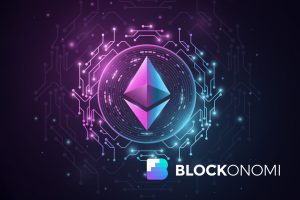Starknet approves new staking mechanism with dynamic STRK minting curve

Starknet community approved a dynamic minting curve for STRK tokens.
The minting curve adjusts token supply based on staking participation levels.
Starknet Foundation can modify minting parameters to manage inflation and rewards.
The Starknet community has successfully passed a proposal to implement a dynamic minting curve for STRK tokens, a significant move to balance staking incentives with token supply.
Nearly 98.94% of voters supported the new staking mechanism, which aims to offer more control over token inflation while incentivizing user participation. It makes Starknet the first major Ethereum Layer 2 (L2) to roll out staking functionality.
The new minting curve included in the approved proposal is based on “Proposal 2” by Professor Noam Nisan, with slight modifications. It will adjust the minting rate according to staking participation levels.
James Strudwick, executive director of the Starknet Foundation, described the approval as a game-opCEO of StarkWare, and echoed these sentiments, noting that the approval “gives the community a real stake — both literally and figuratively — in its future.”
How the dynamic minting curve works
The dynamic minting curve will adjust the token minting rate (M) based on the staking rate (S) and a constant (C), initially set at 1.6. The formula allows the token supply to be fine-tuned according to how many users are staking, preventing inflation when staking levels are high and encouraging participation when engagement is low.
Additionally, the Starknet Foundation or a designated monetary committee will be responsible for adjusting the minting parameters. This includes the ability to modify the constant (C) within a range of 1.0 to 4.0, depending on staking trends.
Any changes to minting rates will require public announcements and a two-week notice period for community review, ensuring transparency.
With this dynamic system in place, Starknet hopes to foster a more engaged community and incentivize long-term network participation, helping to ensure the stability and growth of the platform.













